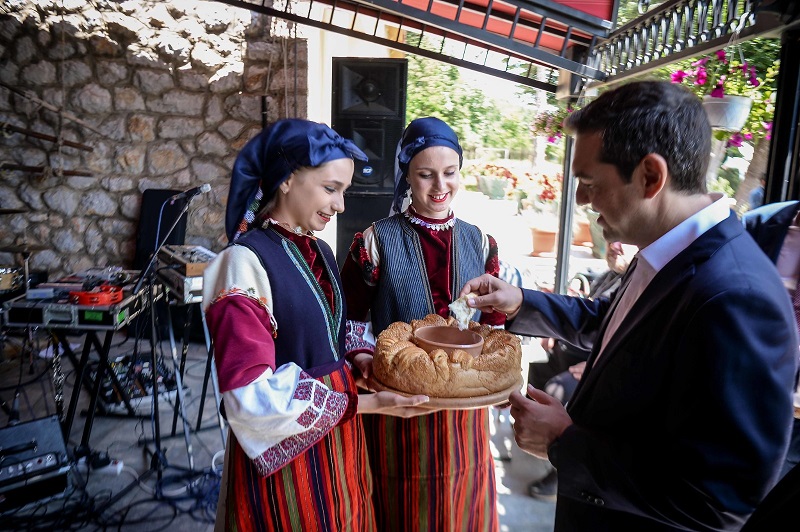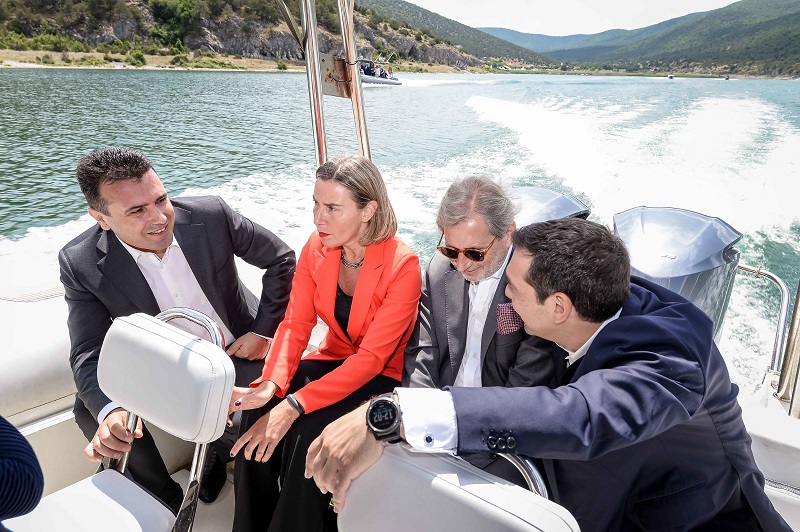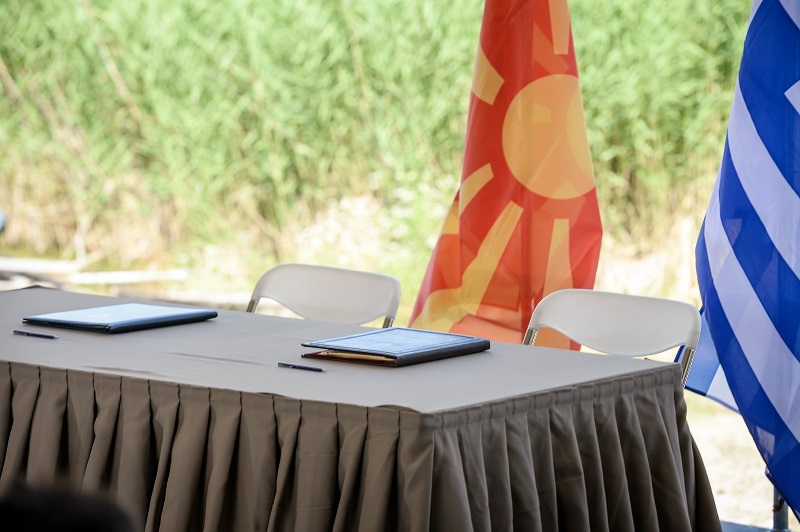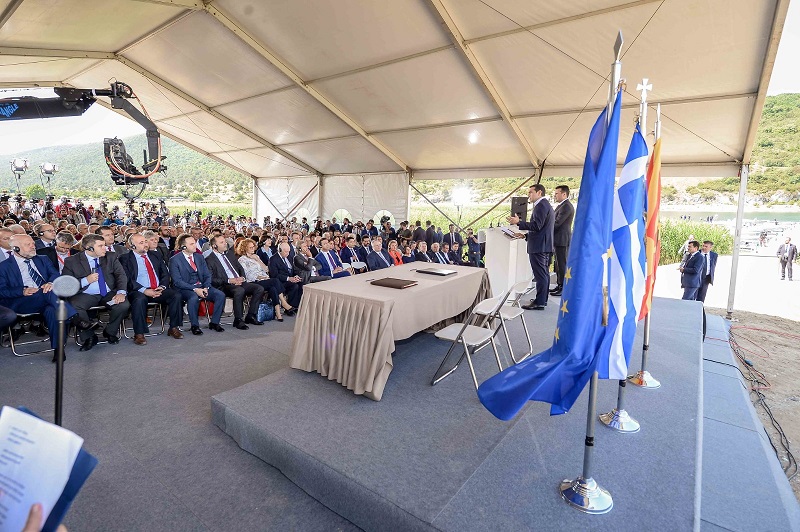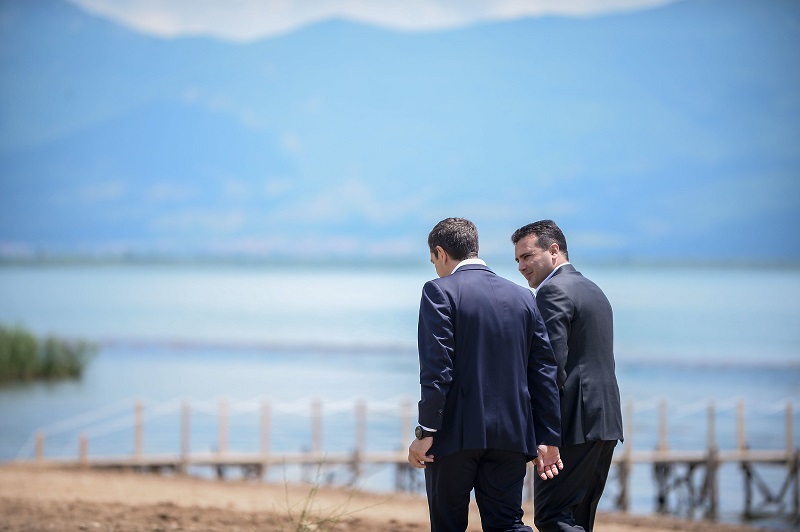Many things are known about the Prespa Agreement, which was signed five years ago, on June 17, 2018, in the small village of Nivitsi (Psarades) on the shores of Lake Prespa on the Greek side. This agreement closed the long-standing open issues surrounding the name of the Republic of Macedonia with Greece and opened the doors of our country for membership in NATO.
The agreement was signed by the then Ministers of Foreign Affairs of the two countries, Nikola Dimitrov and Nikos Kozias, in the presence of the then Prime Ministers Zoran Zaev and Alexis Tsipras. Special envoy, the negotiator Matthew Nimitz, former European Commissioner for Enlargement Johannes Hahn, former High Representative of the EU for foreign policy and security Federica Mogherini, and other senior international representatives, as well as representatives of both countries, were present at the ceremony of signing this document.
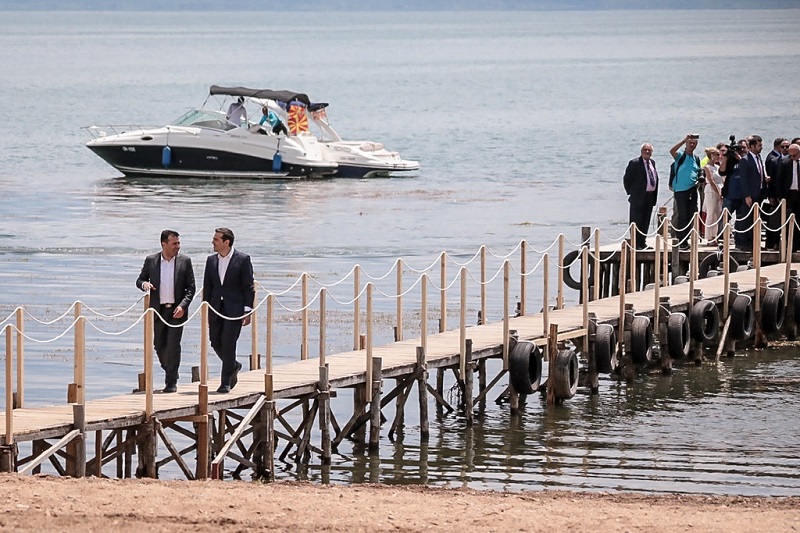 This year, we mark the fifth anniversary of the signing considered by many to be a historic agreement and a model for the peaceful resolution of disputes. Little-known details are revealed by Marjan Zabrchanec, current National Coordinator for the Open Balkan and Regional Initiatives, who was then in charge of the government’s communication service. Zabrhcanec was a special advisor for public relations to Prime Minister Zaev, after which he took the position of the National Coordinator for Strategic Communications.
This year, we mark the fifth anniversary of the signing considered by many to be a historic agreement and a model for the peaceful resolution of disputes. Little-known details are revealed by Marjan Zabrchanec, current National Coordinator for the Open Balkan and Regional Initiatives, who was then in charge of the government’s communication service. Zabrhcanec was a special advisor for public relations to Prime Minister Zaev, after which he took the position of the National Coordinator for Strategic Communications.
 The organization of the event lasted only two and a half days
The organization of the event lasted only two and a half days
“The organization of the event lasted only two and a half days, from Thursday afternoon to Sunday morning,” Zabrchanec told Nezavisen.
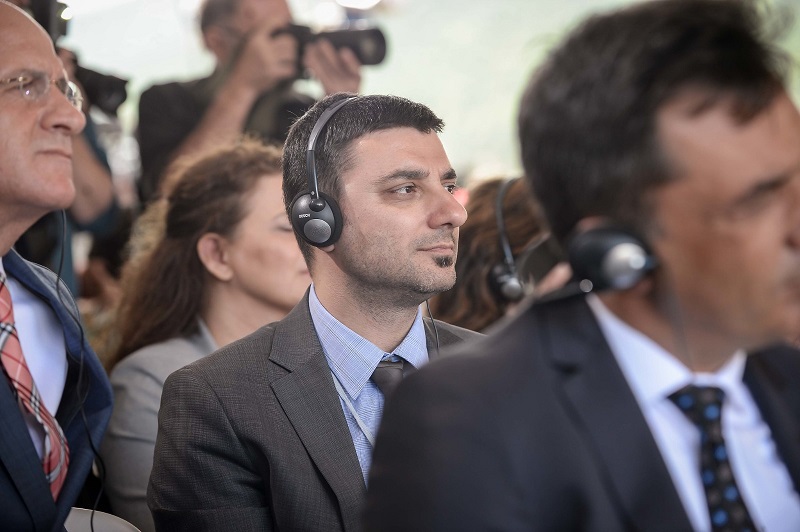 “Prime Minister Zaev informed us that the Agreement has been reached and that it is necessary to organize a large ceremony for the signing. Zaev and Tsipras had agreed that the location was to be Prespa, and my colleague Dane Taleski and I, together with the cabinet teams, had the task of devising a scenario and undertaking all the preparations. We met with colleagues from Tsipras’ cabinet in Nivitsi on Thursday afternoon and we finished all the preparation and organization of the ceremony on both shores of the lake in two and a half days. The signing took place on Sunday, June 17 at noon,” he says.
“Prime Minister Zaev informed us that the Agreement has been reached and that it is necessary to organize a large ceremony for the signing. Zaev and Tsipras had agreed that the location was to be Prespa, and my colleague Dane Taleski and I, together with the cabinet teams, had the task of devising a scenario and undertaking all the preparations. We met with colleagues from Tsipras’ cabinet in Nivitsi on Thursday afternoon and we finished all the preparation and organization of the ceremony on both shores of the lake in two and a half days. The signing took place on Sunday, June 17 at noon,” he says.
 Macedonian MPs transported by boats
Macedonian MPs transported by boats
He adds that due to protests and blockades in Greece, the Macedonian MPs did not manage to arrive on time for the ceremony, so they had to be transported by boats from Nivitsi to Oteshevo.
“On Sunday, June 17, early in the morning, the Macedonian MPs left Skopje for Nivitsi in an organized bus transport to attend the act of signing. Unfortunately, due to the protests and roadblocks caused by the Greek nationalist opponents of the agreement, our MPs arrived in Nivitsi after the ceremony ended and after the main protagonists had already arrived in Oteshevo”, says Zabrchanec.
He adds that it was a moment of great disappointment for the MPs.
“But we quickly resolved that. In coordination with colleagues from the Greek protocol, we quickly activated the Greek (water police) boats and with several trips we transported the MPs from Nivitsi to Oteshevo, so that they could join the lunch and congratulate the signing of the agreement”, says Zabrchanec.
 Kozias enjoyed Foltin’s Vezilke
Kozias enjoyed Foltin’s Vezilke
At the closing ceremony in Oteshevo the Macedonian band “Foltin” played, and Kozias enjoyed “Vezilke” and Bowie’s covers, Zabrchanec recalls.
“The final ceremony, the joint lunch, was held on Macedonian territory, at the Lake View Hotel in Oteshevo. Traditional Macedonian food was served and ‘Foltin’ continyed playing. It was Mogherini and Nimitz’s birthday. A cake was served, and Kozias danced to ‘Vezilke’ and to covers by David Bowie in a performance of ‘Foltin’” Zabrchanec says
 Strain and tears among media representatives
Strain and tears among media representatives
He adds that when they arrived from Nivitsi in Oteshevo, he was among the first to get off the ship and reach the land.
“Videographers, reporters and photographers were already in position to welcome Zaev, Tsipras and the delegations. There was a complete strain, an incredible silence in a location where there were more than 300 people. Only sighs and wind could be heard. Tears were visible among some of the media representatives”, adds Zabrchanec.
 The cabinets of Zaev and Tsipras functioned as one
The cabinets of Zaev and Tsipras functioned as one
Zabrchanec says that given the short period for organization, the preparations required full trust and coordination between Zaev’s cabinet and Tsipras’ cabinet.
“Trust was at a high level, for all activities on both sides of the lake we provided full support both from a logistical and communication point of view. That process created lasting friendships between us and our colleagues from Greece that last to this day and I believe they will last for years to come,” says Zabrchanec to Nezavisen.
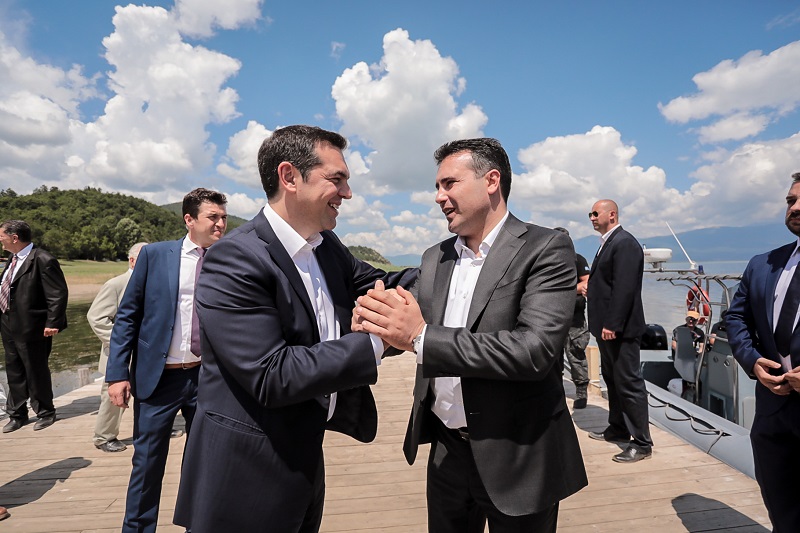 By the way, the Prespa Agreement officially entered into force on February 12, 2019, eight months after it was signed and after it was ratified in our Assembly and in the Greek Parliament.
By the way, the Prespa Agreement officially entered into force on February 12, 2019, eight months after it was signed and after it was ratified in our Assembly and in the Greek Parliament.
According to the agreement, the Republic of Macedonia was renamed into Republic of North Macedonia, the citizenship became Macedonian/citizen of the Republic of North Macedonia, and the language Macedonian. The settlement was preceded by negotiations that lasted 27 years.
With the Agreement, the path to NATO and the EU was opened for our country, but it also gained a neighbor – friend and ally, advancing bilateral relations to an enviable level, both political and economic.










